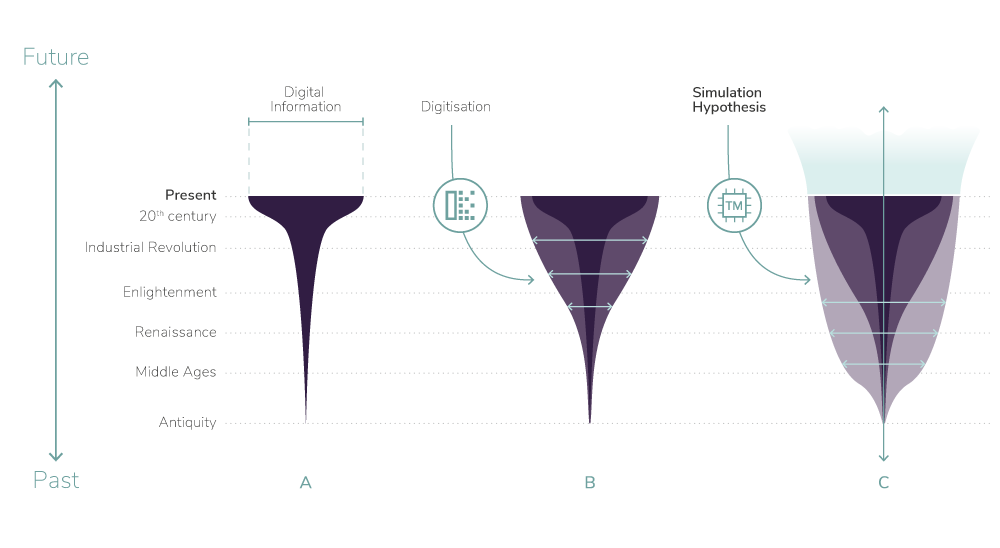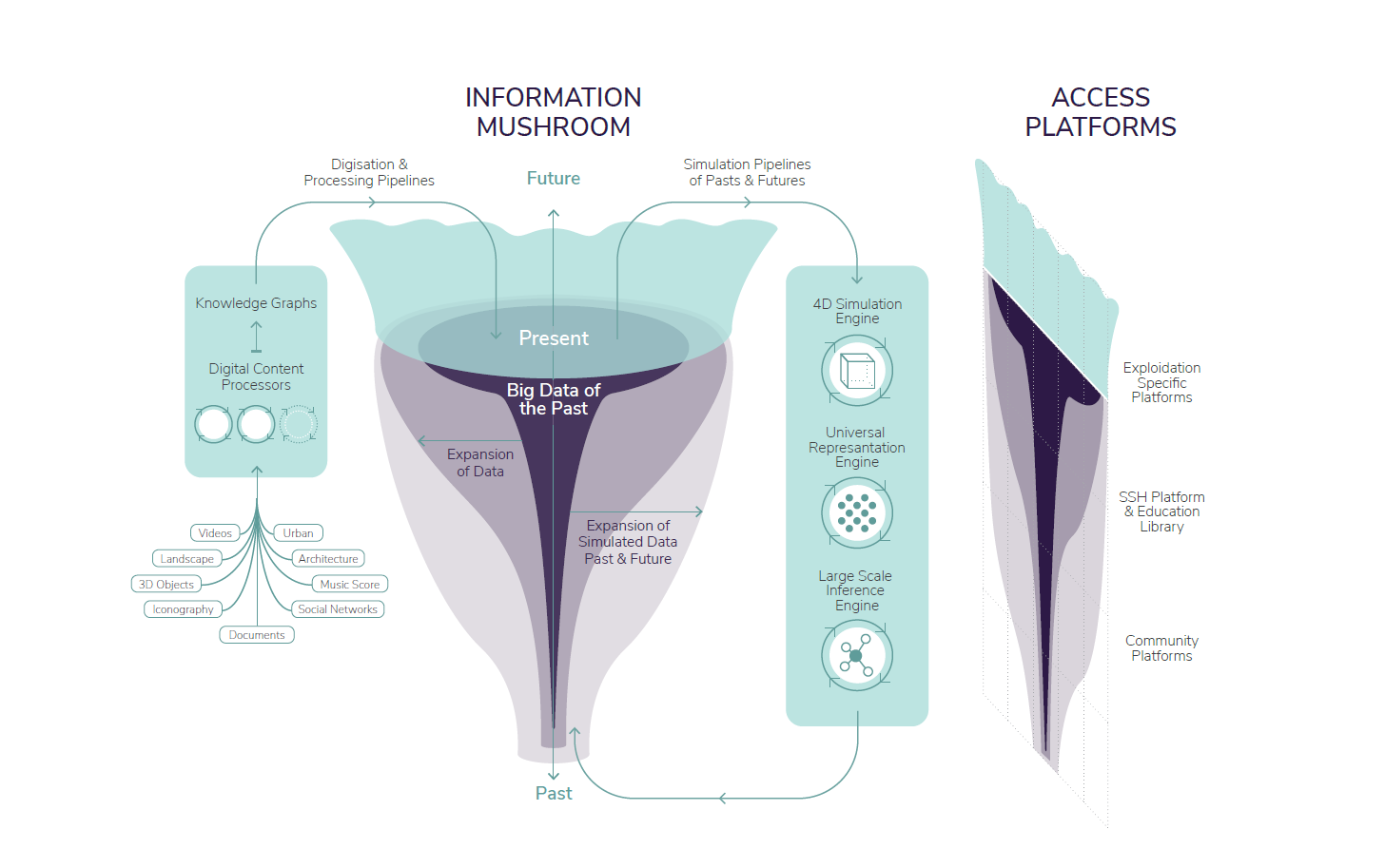Time Machine: Invigorating European History with the Big Data of the Past
Time Machine is aiming to join Europe’s rich past with up-to-date digital technologies and infrastructures, creating a collective digital information system mapping the European economic, social, cultural and geographical evolution across times.
In the proposed approach, digitisation is only the first step of a long series of extraction processes, including document segmentation and understanding enhanced by Augmented/Virtual Reality (AR/VR) applications, leading to simulations of hypothetical spatiotemporal 4D reconstructions.

Such computational models are key resources for developing new critical reflections on our past and future, enabling new insights for historians, social scientists, creative arts professionals, policy makers, and for the general public, with a significant common denominator: contributing to informed decision-making from everyday life to academic, professional and political matters.
ADDING A NEW DIMENSION TO THE PAST
Time Machine aims to develop the Big Data of the Past, creating a huge distributed digital information system mapping the European social, cultural and geographical evolution across times. This large-scale digitisation and computing infrastructure will enable Europe to turn its long history, as well as its multilingualism and interculturalism, into a living social and economic resource.

Pushing frontiers
By pushing the frontiers of scientific research in Information and Communication Technologies (ICT) and in the Social Sciences and Humanities (SSH), Time Machine will strongly impact key sectors of European economy: ICT software, especially Augmented/Virtual Reality (AR/VR) applications; the creative industries; and tourism. Moreover, it will offer new perspectives in urban planning, land management and developing smart cities.
Time Machine will have strong positive long-term effects on European cohesion, economy and society, with concrete contributions to promoting critical thinking at all levels of decision making, to strengthening the feeling of European identity, as well as to boosting scientific and technological competitiveness, entrepreneurship and employment in knowledge-intensive and creative sectors across the European Union.
Interested to join the Time Machine network?
Joining the Time Machine network is easy – simply become a member of the Time Machine Organisation (TMO). The Time Machine Organisation is the institutional governing framework behind Time Machine and a one of a kind formation uniting accomplished experts from science, technology and cultural heritage. As an international association, TMO is open to any entity dealing with topics related to Time Machine.
Learn moreYour benefits of being a member of the TMO?
As member of the Time Machine Organisation you have the opportunity to take part in interdisciplinary projects with international orientation and join the continuous exchange of knowledge and expertise of leading experts in Europe.
Moreover, you can integrate your research activities and projects into the Local Time Machine environment, filling Time Machine with life!

